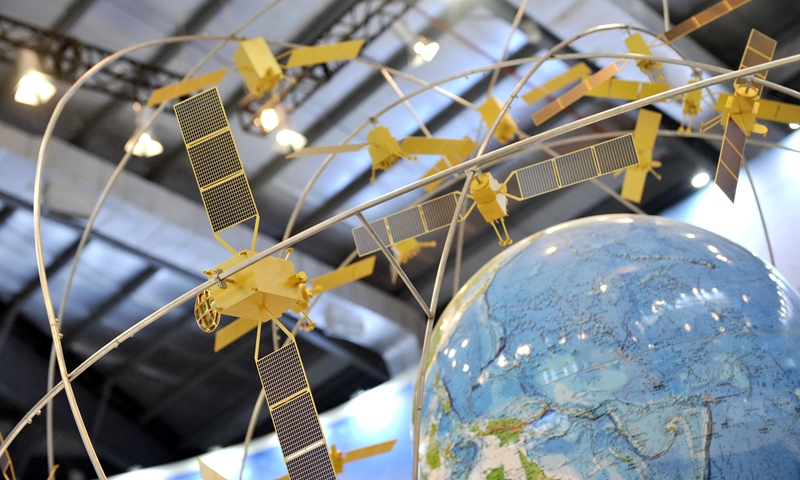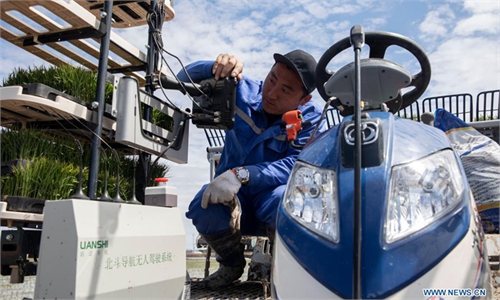
File photo of a model of the Beidou Satellite Navigation System.Photo:Xinhua
As China has been continuously expanding the application of the self-developed BeiDou Navigation Satellite System (BDS), its technology has been increasingly integrated into core infrastructure across a range of industries including finance and power generation, while multiple provinces and regions plan to create an integrated BDS industrial ecosystem.In 2020, the output value of China's satellite navigation and location services industry with BDS as its core technology reached 403.3 billion yuan ($62.59 billion), up 16.9 percent from 2019, reflecting rapid development, China Media Group reported on Monday, citing data from an annual industry conference that opened in Zhengzhou, Central China's Henan Province on Sunday. The total value generated by satellite navigation applications and services increased by 19.9 percent year-on-year to hit 273.8 billion yuan.
The BDS has been widely adopted in a number of fields, including transportation, public security, finance, electricity and other industries.
Enterprises from industries such as transportation and railways have established institutions to further explore the BDS' technology and its integration with those industries, Yu Xiancheng, president of the GNSS and LBS Association of China, said in the report.
In 2018, BDStar (Chongqing) Auto Electronic Co, a wholly owned subsidiary of BDStar Navigation based in Southwest China's Chongqing Municipality, signed a strategic partnership with domestic carmaker Changan Automobile to promote the application of BeiDou technology in Changan automobiles, an employee from BDStar (Chongqing), who asked to remain anonymous, told the Global Times on Monday.
By the end of 2022, global navigation satellite system reference stations will receive an uninterrupted feed of data from the BeiDou-3 global satellite navigation system, Wang Guanghua, vice minister of the Ministry of Land and Resources, said at the conference.
Yu noted that the BDS is accelerating integration with other new technologies, such as artificial intelligence, 5G, blockchain and other strategic frontier technologies, becoming an important component of building new infrastructure.
Multiple provinces and regions including Beijing and Shanghai have introduced or are implementing plans and policies to further promote the in-depth application of the BDS and create an integrated application ecosystem.
An industry insider from Chongqing noted that the municipality is formulating a plan specifically targeting the promotion of the BDS during the 14th Five-Year Plan period (2021-25), aiming to promote its large-scale use, while further promoting high-quality industrial development.
Global Times


